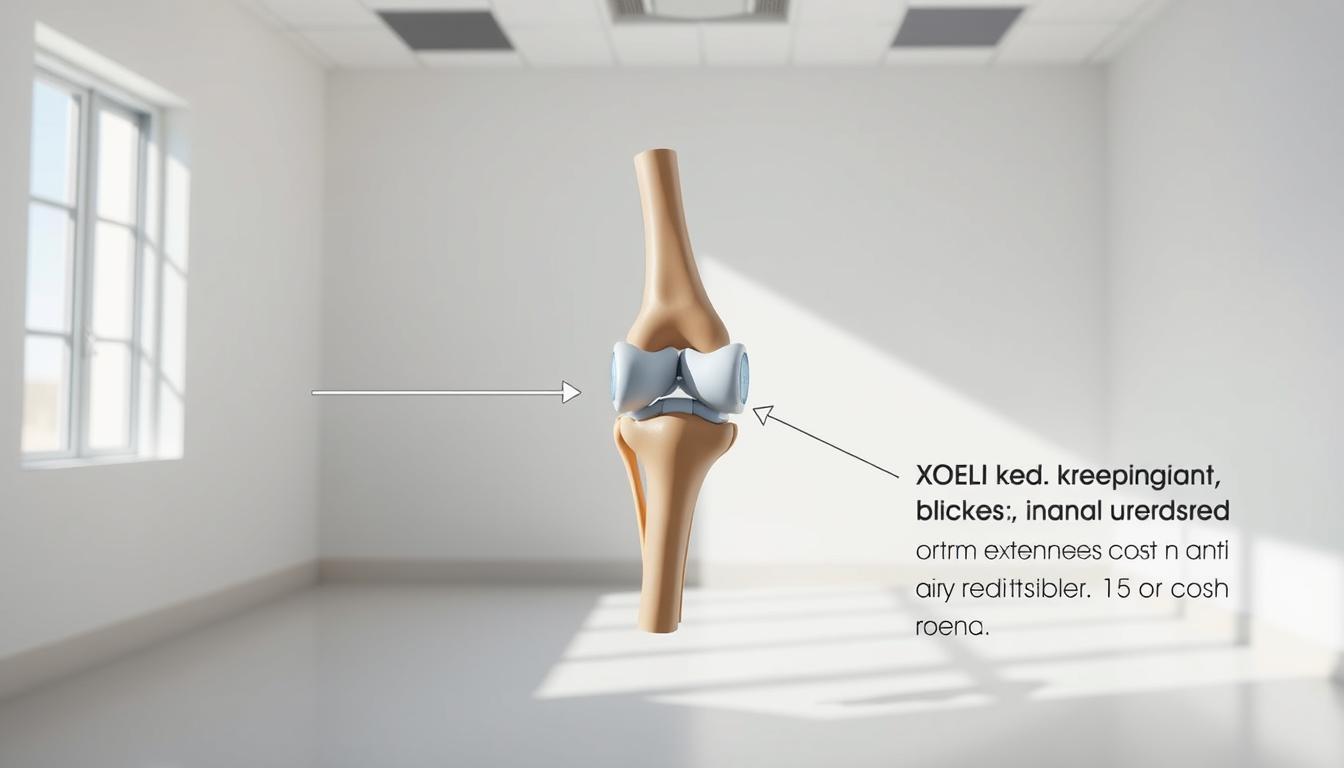For many individuals in the United States, understanding the expenses involved in medical procedures is crucial, especially when it comes to significant surgeries like knee replacement. The financial burden can be overwhelming, particularly for those without insurance coverage.
The cost of knee replacement surgery can vary significantly across different states, influenced by factors such as hospital charges, surgeon fees, and post-operative care expenses. It’s essential to be aware of these costs to plan accordingly.

Some states offer more affordable options for knee replacement surgery, making it vital to explore these variations to save on medical expenses. This article will guide you through the states where you can potentially save big on knee replacement surgery without insurance.
Key Takeaways
- Understanding the cost factors involved in knee replacement surgery.
- Identifying states with more affordable knee replacement options.
- Exploring ways to save on medical expenses without insurance.
- Factors influencing the cost of knee replacement surgery.
- Tips for planning and budgeting for knee replacement surgery.
The Reality of Knee Replacement Cost Without Insurance
The reality of knee replacement costs without insurance is a pressing concern for many individuals considering this surgery. Understanding the financial implications is crucial for making informed decisions about your healthcare.
Average National Cost Breakdown
The average cost of knee replacement without insurance can vary significantly across the United States. On average, the total cost can range from $30,000 to $50,000 or more, depending on several factors.
| Component | Average Cost |
|---|---|
| Surgeon’s Fee | $8,000 – $12,000 |
| Hospital Stay | $15,000 – $30,000 |
| Implants and Supplies | $7,000 – $10,000 |
| Rehabilitation | $1,000 – $3,000 |
What’s Included in the Total Price
The total price of knee replacement surgery includes various components such as surgeon’s fees, hospital stay, implants, and rehabilitation costs. Understanding what’s included can help you better estimate your out-of-pocket expenses. It’s essential to get a detailed breakdown from your healthcare provider to avoid any unexpected costs.
Factors That Influence Out-of-Pocket Knee Surgery Costs
Several key factors can significantly impact the overall cost of knee replacement surgery for self-pay patients. Understanding these factors can help individuals better navigate the cost landscape.
Hospital Type and Location
The type of hospital and its location play a significant role in determining out-of-pocket costs. Urban hospitals tend to be more expensive than rural ones.
Surgeon Experience and Reputation
A surgeon’s experience and reputation can also impact costs. More experienced surgeons may charge higher fees.
Type of Knee Replacement Procedure
The type of knee replacement procedure chosen affects the overall cost. Traditional knee replacement surgeries are generally less expensive than robotic-assisted surgeries.
| Factor | Low Cost | High Cost |
|---|---|---|
| Hospital Location | Rural | Urban |
| Surgeon Experience | Less Experienced | Highly Experienced |
| Procedure Type | Traditional | Robotic-Assisted |
Top 5 States With the Most Affordable Knee Replacements
Uninsured individuals seeking knee replacement surgery can find significant savings in certain states that offer lower costs for the procedure. These states have been identified based on their ability to provide affordable knee replacement options without compromising on the quality of care.
1. Alabama
Alabama stands out as one of the most affordable states for knee replacement surgery, with costs significantly lower than the national average. The state’s healthcare facilities offer competitive pricing, making it an attractive option for those without insurance.
2. Oklahoma
Oklahoma is another state that offers affordable knee replacement options. With a range of healthcare providers offering competitive rates, individuals can save substantially on their knee replacement surgery.
3. Georgia
Georgia’s hospitals and surgical centers provide high-quality care at lower costs, making it a viable option for uninsured individuals. The state’s uninsured knee replacement price is among the lowest in the country.
4. Texas
Texas offers a mix of large hospitals and specialized surgical centers, providing a range of options for affordable knee replacement surgery. The state’s large healthcare market drives competition, which helps keep costs down.
5. South Carolina
South Carolina rounds out the list of the top 5 states with the most affordable knee replacement options. Its healthcare facilities are known for providing quality care at competitive prices, making it an excellent choice for those seeking affordable knee replacement surgery.
Payment Options for Uninsured Patients
Uninsured patients facing knee replacement surgery need to explore various payment options. Managing the financial burden requires understanding the available alternatives.
Several financial assistance options are available, including:
- Medical Loans and Healthcare Credit Cards that offer financing for medical procedures.
- Hospital Payment Plans that allow patients to pay for surgery in installments.
- Charity Programs that provide financial assistance to eligible patients.
- Health Savings Accounts (HSAs) for those who have a high-deductible health plan.
- Crowdfunding platforms that help raise money for medical expenses.
Medical Loans and Healthcare Credit Cards
Medical loans and healthcare credit cards are designed to cover medical expenses. They often come with competitive interest rates and flexible repayment terms.
Hospital Payment Plans and Charity Programs
Many hospitals offer payment plans that allow patients to pay for their surgery over time. Additionally, some charity programs provide financial assistance to patients who meet specific criteria.
Health Savings Accounts (HSAs) and Crowdfunding
For those with a high-deductible health plan, HSAs can be a valuable resource. Crowdfunding platforms are another option, allowing patients to raise funds from friends, family, and community members.
Practical Strategies to Reduce Your Knee Replacement Expenses
Patients can save substantially on knee replacement costs by making informed decisions. Reducing the financial burden of knee replacement surgery involves several key strategies.
Negotiating Directly with Healthcare Providers
One effective way to lower costs is by negotiating directly with healthcare providers. Many hospitals and surgeons are willing to offer discounts or payment plans, especially for patients without insurance. It’s essential to discuss your options openly and ask about any available discounts.
Exploring Ambulatory Surgery Centers vs. Hospitals
Choosing an ambulatory surgery center over a traditional hospital can significantly reduce costs. These centers typically have lower facility fees and can offer a more personalized experience. Key benefits include:
- Lower facility fees
- Personalized care
- Shorter recovery times
Timing Your Procedure for Maximum Savings
Timing your knee replacement surgery strategically can also lead to savings. Some healthcare providers offer discounts during off-peak seasons or for procedures scheduled during less busy times. Planning ahead can help you take advantage of these opportunities.
Conclusion
Understanding the knee replacement cost without insurance is crucial for individuals facing this significant medical expense. As discussed, the cost can vary significantly depending on several factors, including the state you reside in, the type of procedure, and the healthcare provider.
States like Alabama, Oklahoma, Georgia, Texas, and South Carolina offer more affordable knee replacement options, potentially saving thousands of dollars. Exploring payment options such as medical loans, healthcare credit cards, and hospital payment plans can also help manage the financial burden.
By negotiating directly with healthcare providers, considering ambulatory surgery centers, and timing your procedure strategically, you can further reduce your out-of-pocket expenses. Being informed and proactive can make a significant difference in managing knee replacement costs without insurance.
FAQ
What is the average cost of knee replacement surgery without insurance?
The average cost of knee replacement surgery without insurance can range from $30,000 to $50,000 or more, depending on various factors such as location, hospital type, and surgeon experience.
Are there any affordable knee replacement options available?
Yes, there are affordable knee replacement options available, particularly in certain states such as Alabama, Oklahoma, and Georgia, where the cost of living and medical expenses are relatively lower.
How can I reduce my out-of-pocket knee surgery costs?
You can reduce your out-of-pocket knee surgery costs by negotiating directly with healthcare providers, considering ambulatory surgery centers, and timing your procedure strategically to achieve maximum savings.
What payment options are available for uninsured patients undergoing knee replacement surgery?
Uninsured patients can explore various payment options, including medical loans, healthcare credit cards, hospital payment plans, charity programs, Health Savings Accounts (HSAs), and crowdfunding to help manage the financial burden of knee replacement surgery.
Can I negotiate the cost of knee replacement surgery with my healthcare provider?
Yes, it is possible to negotiate the cost of knee replacement surgery with your healthcare provider, and some providers may offer discounts or payment plans for uninsured patients.
How does the type of knee replacement procedure affect the overall cost?
The type of knee replacement procedure can significantly impact the overall cost, with more complex procedures or those requiring specialized implants potentially costing more than standard knee replacement surgeries.
Are there any additional expenses I should consider when budgeting for knee replacement surgery?
Yes, in addition to the surgical cost, you should also consider expenses such as pre-operative testing, post-operative care, physical therapy, and any necessary medical equipment or supplies when budgeting for knee replacement surgery.




